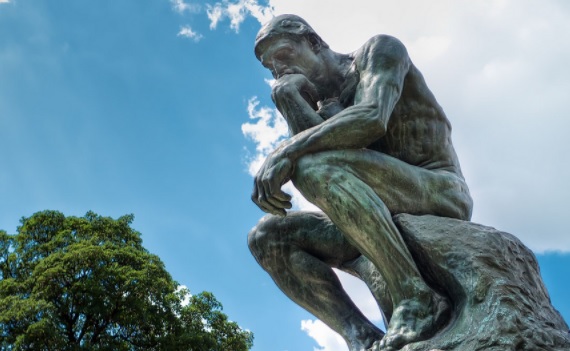ADVERTS
What is Philosophy
Philosophy means love of wisdom. This type of knowledge was born as soon as man began to think and analyze his own existence. The greatest thinkers in history emerged in Ancient Greece, around the mid-16th century BC
Thales of Miletus, Anaximander and Heraclitus tried to explain the world and man through rational and scientific content. Pythagoras believed that everything pre-exists the soul, since it is immortal.
ADVERTS
Democritus and Leucippus start from the existence of atoms to explain the creation of matter. Between the 5th and 6th centuries BC, what can be called the classical period of philosophy developed in Ancient Greece.
Athens was an ideal setting for analytical thinking to be developed, as it had an interesting political system. At that moment, sophist thinkers and Socrates emerged.
Gorgias, Leontinos and Abdera are sophists and preached the use of education to form citizenship and human beings with political awareness, with the practice of rhetoric and artistic development.
ADVERTS
Socrates made man's analytical thinking, in addition to seeking an explanation for the Universe within scientific parameters.

Socrates' thought was reflected and spread to the world through his disciple Plato, who defended the intellectual development of human beings. For Plato, reality was far beyond appearances.
Aristotle also appeared at this time and is from classical deductive logic. The path of knowledge, according to him, must be traced from general concepts to specific ones.
The influence of the Church on Philosophy
The influence of the Catholic Church reached philosophy during the Middle Ages, with the predominance of theocentrism. At that time Saint Augustine was the most important author.
Between the 5th and 18th centuries there was a movement called scholasticism, which is the union of divine theory with rational philosophical knowledge, developed by Saint Thomas Aquinas.
After the bourgeoisie gained social prominence, philosophy changed direction and followed Renaissance thought. Man is then placed at the center of the universe, with the abandonment of theocentrism.
John Locke, Thomas Hobbes and Francis Bacon develop empiricism. René Descartes develops the Cartesian method, which requires proven existence to deserve faith.
Immanuel Kant, Friedrich Hegel and Montesquieu developed the Enlightenment, when knowledge was sought in science.
Karl Marx develops the communist theory of modifying the social structure implemented by capitalism. Friedrich Nietzsche criticizes and presents a theory of liberation.
In contemporary philosophy, the highlight of the Contemporary Era is Jean-Paul Sartre, a scientific thinker who created the theory of existentialism.
